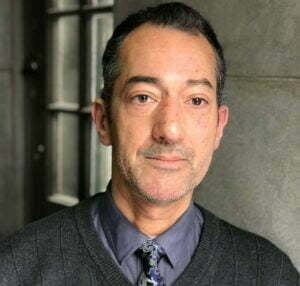SER President’s Message
 It is with a mixture of melancholy and relief that I hammer out the last of my regular newsletter messages as President of SER. Summer 2020 to Summer 2021 has been a year of some accomplishments, some disappointments and some stubborn optimism for all of us. I am sure that you all share my profound hope that this month’s annual meeting will be the last, best, 100% virtual SER meeting we will ever attend together. The line-up for June 22-25 includes many exciting features, sessions and events, including some unmissable plenary talks from invited speakers, award winners and the outgoing President himself.
It is with a mixture of melancholy and relief that I hammer out the last of my regular newsletter messages as President of SER. Summer 2020 to Summer 2021 has been a year of some accomplishments, some disappointments and some stubborn optimism for all of us. I am sure that you all share my profound hope that this month’s annual meeting will be the last, best, 100% virtual SER meeting we will ever attend together. The line-up for June 22-25 includes many exciting features, sessions and events, including some unmissable plenary talks from invited speakers, award winners and the outgoing President himself.
I would like to take this moment to highlight two of these talks that are most anticipated. For the first plenary session on Wednesday June 23rd, the keynote speaker is Marc Lipsitch, Professor of Epidemiology at the Harvard T.H. Chan School of Public Health and Director of Harvard’s Center for Communicable Disease Dynamics. Marc is a Rhodes Scholar and Fellow of the National Academy of Medicine, and one of the world leaders in cutting-edge epidemiological approaches to the study of SARS-CoV-2 and the COVID-19 pandemic, as well being active in social and traditional media in outreach and public engagement.
The second plenary session on Thursday June 24th is capped off by the semi-annual Cassel lecture, in honor of the father of modern social epidemiology, John Cassel, who would have turned 100 years old this year. This was not only a special Cassel lecture because of his 100th birthday, but also for me because he is my academic grandfather, having been the primary intellectual mentor of my own primary intellectual mentor, Sherman James. So I took especially seriously the legacy of John Cassel in selecting the speaker this year, seeking someone who could best represent and exemplify Cassel’s radical transformation of epidemiology from a narrowly biomedical discipline to one that was broadly humanistic and ethnographic, a new interdisciplinary science that took culture seriously as a determinant of health and disease. For this challenge, I turned to the remarkable psychiatrist/anthropologist Helena Hansen, Professor and Chair of Translational Social Science and Health Equity, as well as Associate Director of the Center for Social Medicine at UCLA’s Geffen School of Medicine. In her work on such topics as faith healing of addiction in Puerto Rico, psychiatric disability under welfare reform, opioids and race, ethnic marketing of pharmaceuticals, and structural competency, Helena has amplified and deepened John Cassel’s crucial insights about human disease arising in social and cultural context.
Finally, I also want to highlight the results of the recent election for the new SER leadership. The votes are in and counted (although I think in Arizona they are still being recounted and checked for bamboo fibers). I am pleased to announce that Onyebuchi Arah is the new President-Elect, and will assume the Presidency at the annual meeting in Chicago in June 2022. Onyi is Professor of Epidemiology in the Fielding School of Public Health at UCLA, and an affiliated professor at UCLA’s Department of Statistics. He is a physician and methodologist specializing in quantitative methods for bias analysis, causal inference, clinical outcomes and comparative effectiveness research, and global social epidemiology. For the Executive Committee, we are fortunate to welcome two new Members-at-Large. Sunni Mumford is the Earl Stadtman Investigator in the Epidemiology Branch of the Division of Intramural Population Health Research at the Kennedy Shriver National Institute of Child Health and Human Development at NIH. Jessie Edwards is Assistant Professor of Epidemiology at the Gillings School of Global Public Health at the University of North Carolina at Chapel Hill. Both will serve 3-year terms on the SER Executive Committee.
I look forward to seeing you all soon in beautiful, sunny San Diego cyberspace.
